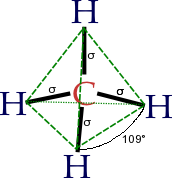
Photo from academic.microsoft.com
Highly diastereo- and enantioselective 1,3-dipolar cycloadditions between functional ketonitrones and β-substituted enals are promoted by organocatalysis with the imidazolidinium catalyst of MacMillan. Study of the scope of the reaction shows… Click to show full abstract
Highly diastereo- and enantioselective 1,3-dipolar cycloadditions between functional ketonitrones and β-substituted enals are promoted by organocatalysis with the imidazolidinium catalyst of MacMillan. Study of the scope of the reaction shows that high selectivities are conserved by varying the N-protecting group or the ester function. However it is sensitive to sterical interaction with the C-substituent of the nitrone. Reaction proceeds in all cases with a high exo selectivity. In most cases, a third diastereomer, not compatible with a concerted mechanism, was observed, although in minute amount. DFT calculations evidence that the cycloaddition proceeds in a non-concerted fashion by a first oxa Michael-type addition of the nitrone to the double bond followed by a cyclization. This mechanism explains the formation of the observed minor diastereomers. In addition, the diastereo- and enantioselectivities of the reaction were shown to be intermediately thermodynamically controlled and the diastereomeric ratio is modulated by the kinetics of iminium hydrolysis.
Journal Title: European Journal of Organic Chemistry
Year Published: 2017
Link to full text (if available)
Share on Social Media: Sign Up to like & get
recommendations!